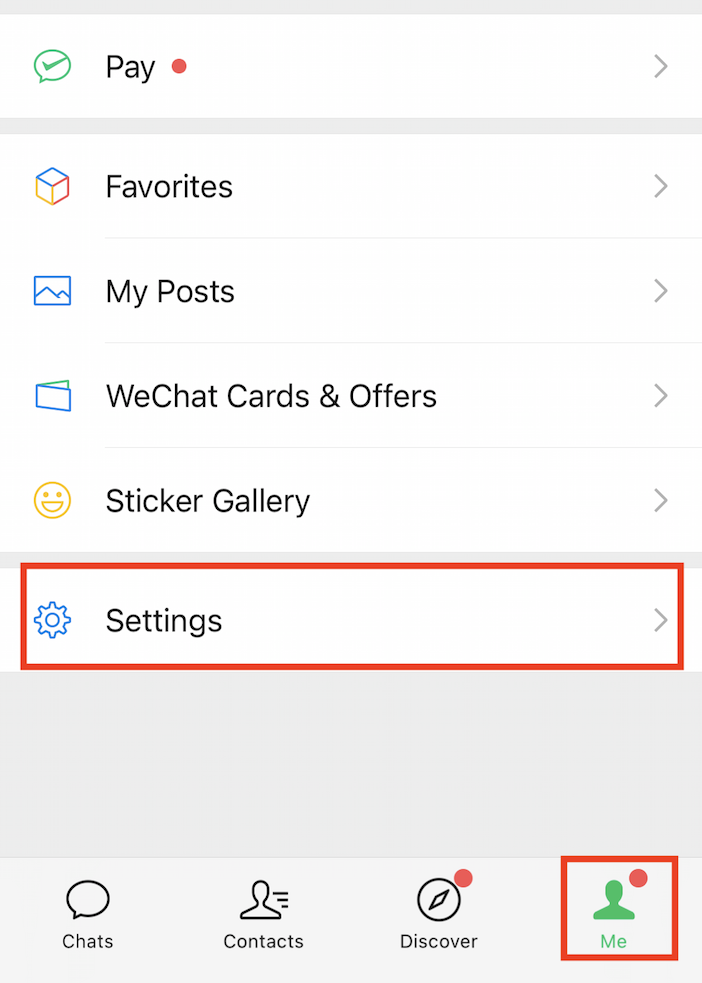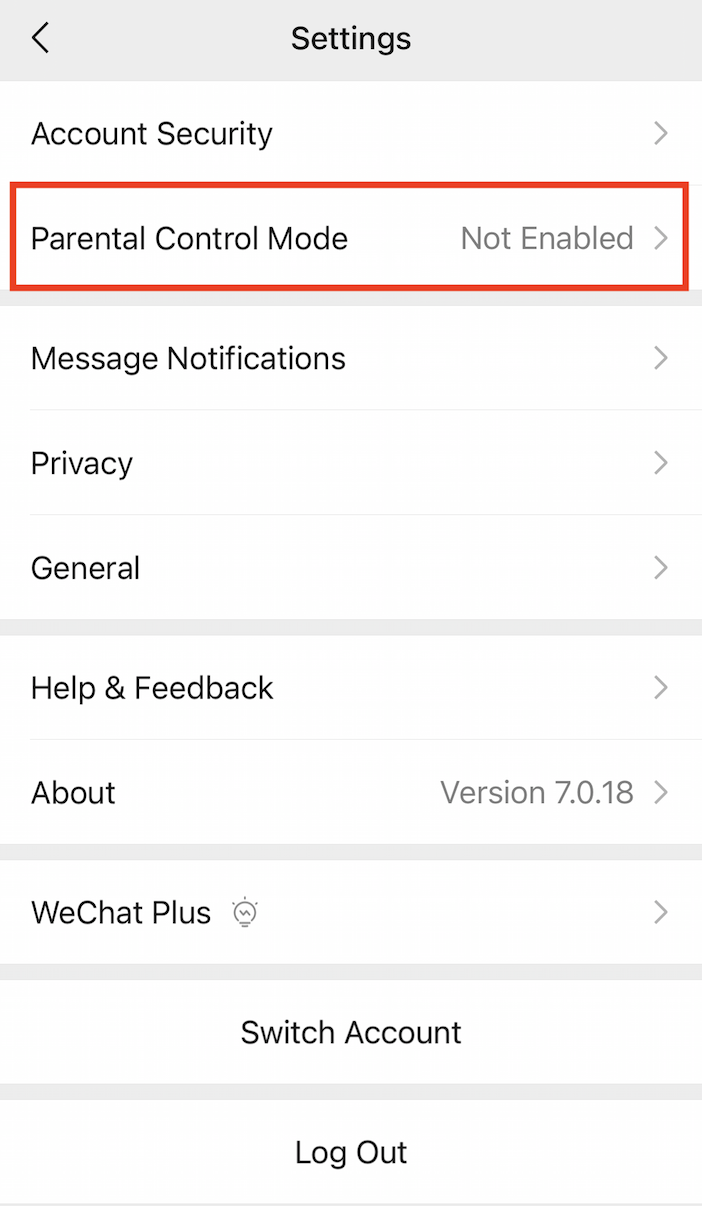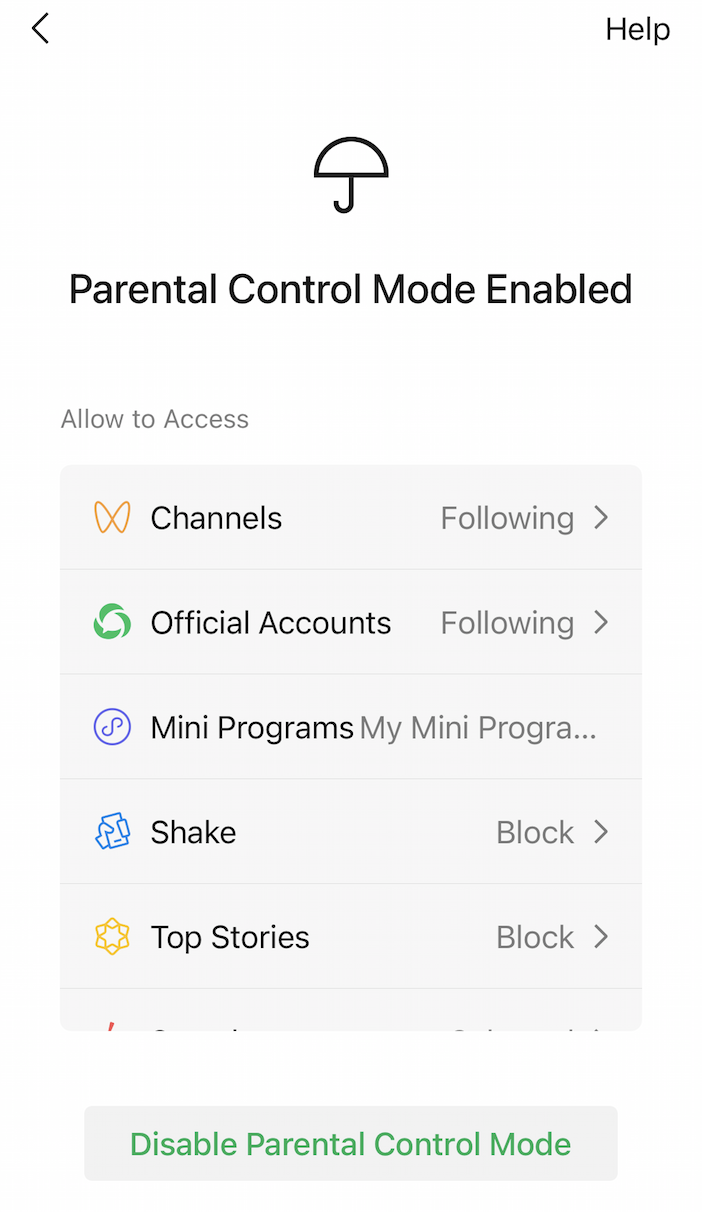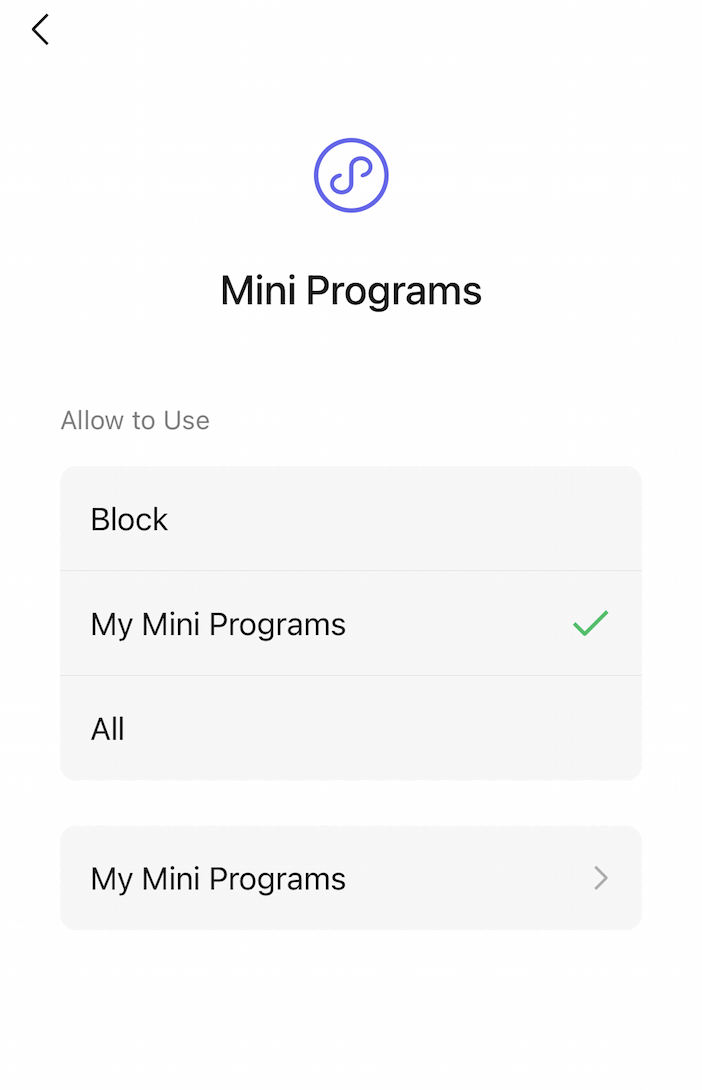In the constant drive to add new features and functionalities to China’s most prevalent app, WeChat recently added a new parental control mode that allows parents to limit their children’s access to information, games, and mini-programs through WeChat.
Parental control mode was actually introduced for the iPhone in version 7.0.17, which beijingkids reported on when it was released on October 2 and was finalized in the most recent update, 7.0.18, at the end of October. It was also added to Android version 7.0.20 on October 29, although some of our Android users in the beijingkids office report not having this option yet, despite their app being up to date. We assume it will filter through in time.
Here is how to enable parental controls:

Step 1: Go to “Me” in the bottom right-hand corner of WeChat and click on “Settings”

Step 2: Once in settings, you should see the option to enable parental control mode.

Step 3: Once you click through to enable parental control mode, you’ll be prompted to enter your WeChat password. If you don’t have one (because you logged in through another platform such as QQ or Facebook, or via VoicePrint) you can set one up in Settings > Account Security > Password.

Step 4: Once you’ve logged in, you’ll be taken to a page with a range of options for you to tailor what content your kids can and cannot access. Functions that locate strangers near to you such as “Message in a bottle” and “Shake to Discover” are automatically disabled, as are games (note that if you want to limit access to games completely, you’ll also have to block those that are placed within mini-programs.

Step 5: Click on the individual functions to tailor your access settings. For example, mini-programs and official accounts can either be completely blocked or limited to only those your WeChat account follows, so you could leave access to fun/educational accounts open. There is also an option to review which mini-programs and accounts you follow.
I was a little bit surprised to see that the parent controls don’t apply to WeChat Pay, but then a lot of older kids in China are probably used to using WeChat pay to make small purchases such as buying snacks and drinks at the 7-11. Plus, by blocking mini-programs you essentially limit access to a lot of functions that would require payment, such as using Didi or buying items on WeChat marketplaces.
All in all, this is a useful function both for if your kids use your smartphone or if they have their own WeChat account. In that case, we recommend that you keep control of the password to the account so that only you can enable and disable the parental controls.
KEEP READING: Weaning Kids Off Screen Time Post-COVID
Images: Unsplash, Robynne Tindall




